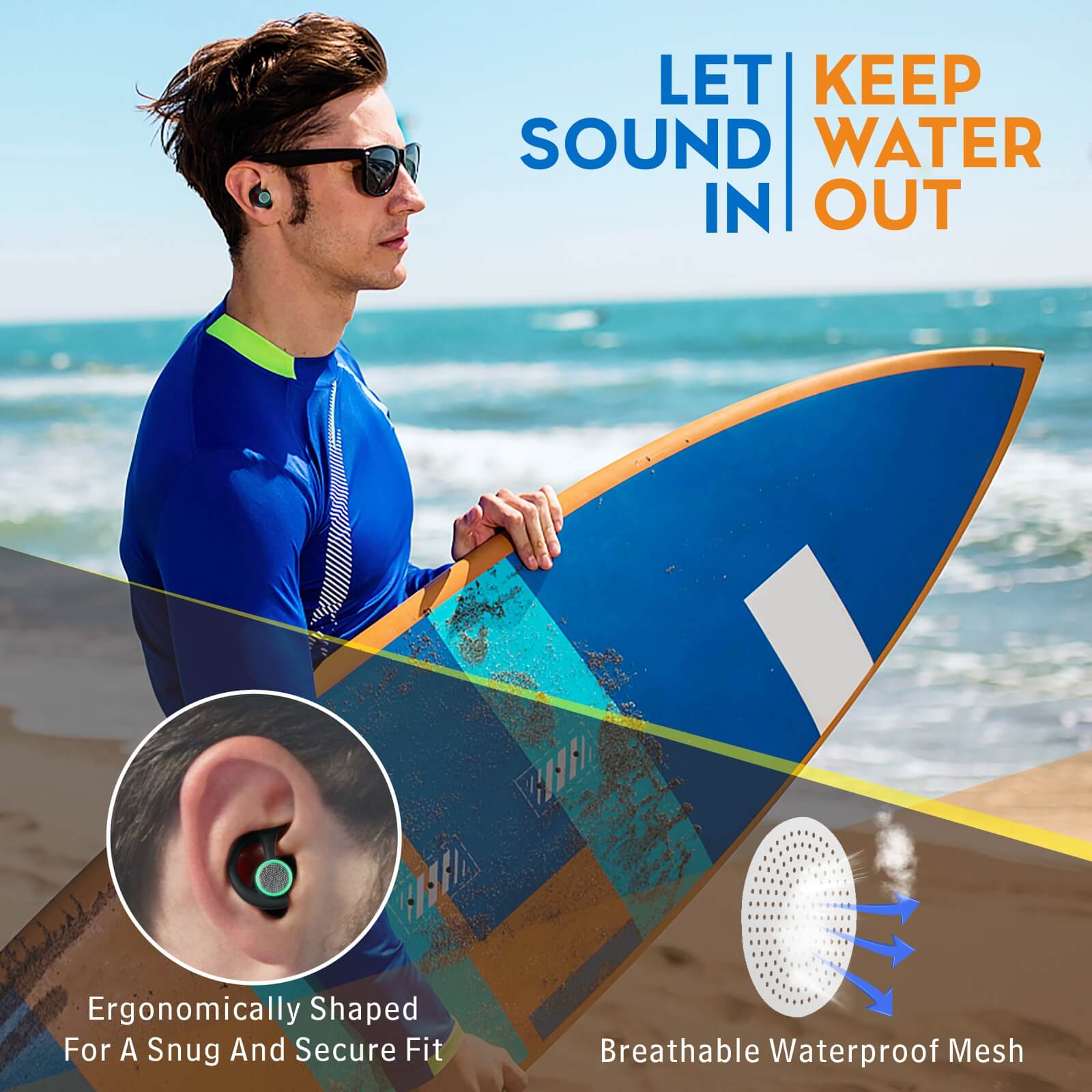Swimming is a popular activity that offers numerous health benefits. However, it can also lead to certain issues, such as swimmer's ear or water getting trapped in the ears. To prevent these problems, many swimmers opt to use ear plugs. In this article, we will explore the different types of swimming ear plugs and discuss their pros and cons.

Types of Swimming Ear Plugs
When it comes to swimming ear plugs, there are several options available in the market. Let's take a closer look at some of the most common types:
Silicone Ear Plugs
Silicone ear plugs are one of the most popular choices among swimmers. They are soft, comfortable, and easy to use. These ear plugs create a tight seal in the ear canal, preventing water from entering. Silicone ear plugs are reusable and can last for a long time with proper care. However, some swimmers may find them too tight or uncomfortable to wear for extended periods.
Wax Ear Plugs
Wax ear plugs are another option for swimmers. They are made from a moldable wax material that conforms to the shape of the ear. Wax ear plugs provide a comfortable fit and effectively block water from entering the ear canal. They are disposable and need to be replaced after each use. However, some swimmers may find them messy to use and prefer other alternatives.
Foam Ear Plugs
Foam ear plugs are a popular choice for swimmers who prefer a softer and more comfortable option. These ear plugs are made from a soft foam material that expands to fit the shape of the ear canal. Foam ear plugs provide a good seal and effectively block water. They are disposable and need to be replaced regularly. However, some swimmers may find them less durable compared to other types of ear plugs.
Custom Molded Ear Plugs
Custom molded ear plugs are the most personalized option available. These ear plugs are made by taking an impression of the individual's ear canal and creating a custom-fit plug. Custom molded ear plugs provide an excellent seal and are highly effective in preventing water from entering the ears. They are durable and can last for a long time. However, they are more expensive compared to other types of ear plugs and require a visit to a professional for fitting.
Pros and Cons of Swimming Ear Plugs
Now that we have explored the different types of swimming ear plugs, let's discuss their pros and cons:
Pros
- Prevent swimmer's ear: Swimming ear plugs create a barrier that prevents water from entering the ear canal, reducing the risk of swimmer's ear.
- Protect against infections: By keeping water out of the ears, ear plugs help protect against infections and other ear-related issues.
- Comfort and fit: Different types of ear plugs offer varying levels of comfort and fit, allowing swimmers to choose the option that works best for them.
- Reusable or disposable: Ear plugs come in both reusable and disposable options, providing flexibility for swimmers.
Cons
- Discomfort: Some swimmers may find certain types of ear plugs uncomfortable to wear, especially for extended periods.
- Reduced hearing: Ear plugs can reduce the ability to hear while swimming, which may be a concern for some swimmers.
- Cost: Custom molded ear plugs can be expensive compared to other types of ear plugs.
- Maintenance: Reusable ear plugs require proper cleaning and maintenance to ensure their effectiveness and longevity.
Overall, swimming ear plugs offer a practical solution for swimmers looking to protect their ears from water-related issues. The choice of ear plugs depends on individual preferences, comfort, and budget.
Conclusion
Swimming ear plugs are essential accessories for swimmers who want to prevent water-related ear problems. Whether you choose silicone, wax, foam, or custom molded ear plugs, each type has its own pros and cons. It's important to consider factors such as comfort, fit, and cost when selecting the right ear plugs for your needs. Remember to consult with a professional if you have any concerns or specific requirements.
Useful Resources:
For more information on swimming ear plugs, you can visit the following credible sites:


